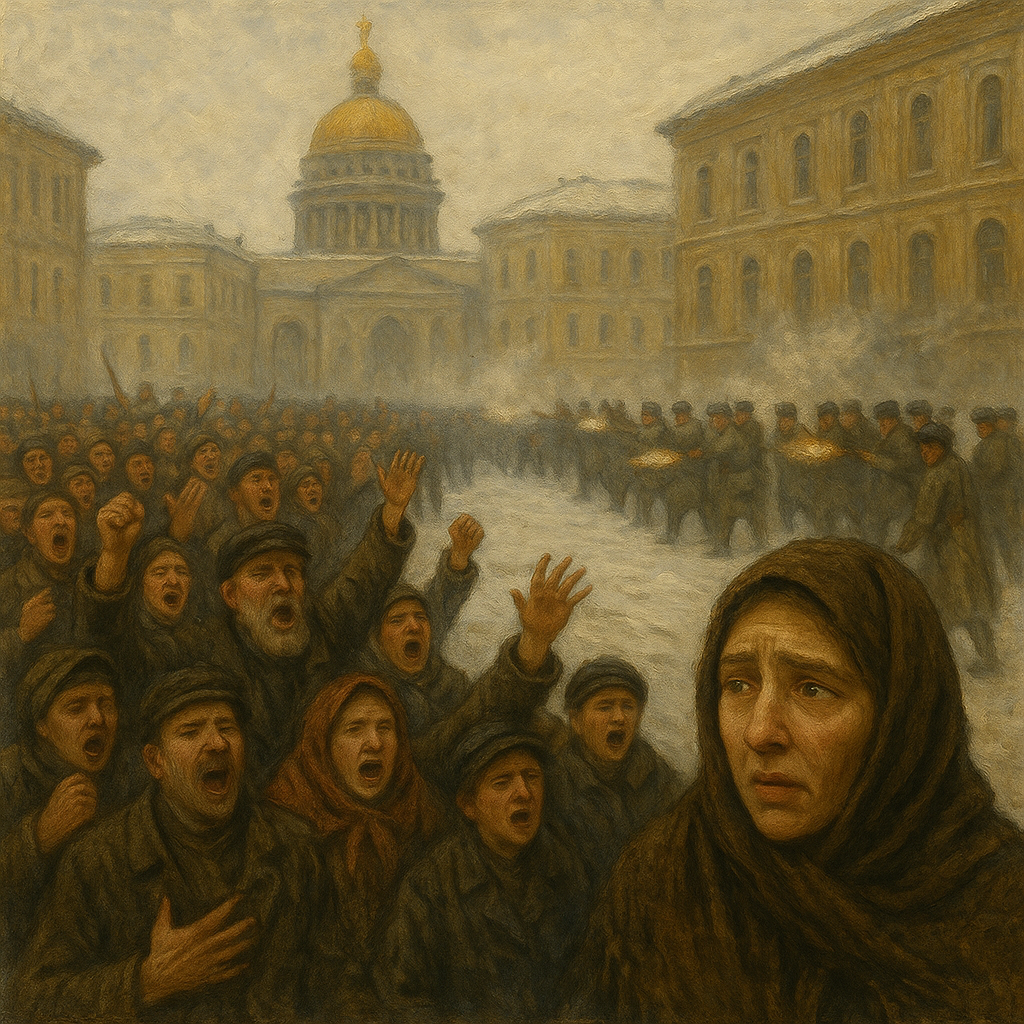Lesson 4: The Russian Revolution (Nationalism and World War I)
🌾 Russia Faces Challenges
At the start of the 1900s, Russia was struggling.
Most people were poor farmers. They worked hard but had little food or land. The weather was cold, the land was hard to farm, and the rich landowners took most of the crops.
Then came war. In 1904, Russia went to war with Japan over land in Asia. People thought Russia would win easily.
🧠 Surprise! Japan won! This was shocking. It was the first time an Asian country beat a major European power.
In 1905, thousands of Russians marched peacefully to the palace in St. Petersburg, asking for food and better work. But soldiers fired into the crowd. This was called “Bloody Sunday.”
💬 A woman in the crowd said, “We came with love for our Tsar. Now our love is gone.”
After this, people across Russia protested. There was a small revolution, but the Tsar (king) kept his power. Still, the people were very angry.
🧠 New Ideas About Government
Many Russians wanted change. Some looked to a man named Karl Marx. He believed in communism.
In Marx’s idea:
There are rich people (owners) and poor workers
The workers should rise up
Everyone should share land and money equally
There should be no kings, no rich, no poor
🧠 A man named Vladimir Lenin loved these ideas. He said, “We must give power to the workers!”
Lenin and others wanted to end the Tsar’s rule and start a new kind of government.
🔨 The Soviet Union Is Born
In 1917, during World War I, life got even worse in Russia.
Soldiers had no food
Families had no coal or bread
People shouted, “Peace! Bread! Land!”
The Tsar finally gave up his crown. Then in October 1917, Lenin and the Bolsheviks took power in what was called the Russian Revolution.
But not everyone agreed. From 1918 to 1921, there was a Civil War.
The Reds (Bolsheviks) wanted communism
The Whites wanted to return to the old ways
The Reds won, and in 1922, the Soviet Union (U.S.S.R.) was created. Russia was now the world’s first communist country.
🧠 Interesting Fact: The new Soviet flag was red with a hammer and sickle. The hammer was for workers. The sickle (a farm tool) was for farmers.
